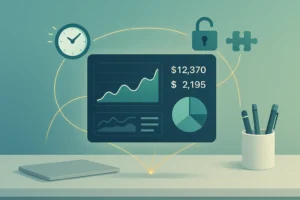It used to be a punchline — Bitcoin in a retirement account? Good luck explaining that one to your financial advisor. But fast forward to 2025, and the conversation has changed. A lot. Now, with Bitcoin ETFs on the market, crypto custody solutions maturing, and Wall Street no longer treating digital assets like radioactive waste, putting Bitcoin in an IRA is starting to look more attractive.
And yes, it’s perfectly legal.
The rising interest comes at a time when retirement savers are desperate for yield, wary of traditional equities, and increasingly open to alternative assets. That shift is expected to be a major undercurrent at this year’s Bitcoin 2025 conference in Las Vegas, where institutional adoption and long-term investment tools are taking center stage.
Why Now?
The short answer: tax advantages. The longer one? Control.
Most people buy Bitcoin on a retail exchange, hold it in a wallet (if they’re lucky), and trigger capital gains every time they sell. Not so in a retirement account. Using a self-directed IRA, either Roth or Traditional, investors can allocate part of their portfolio to Bitcoin, sheltered from tax consequences.
In a Roth IRA, the appeal is especially strong. You’re using post-tax dollars, yes, but any appreciation is completely tax-free at retirement. For an asset with a history of 10x-plus gains, that’s a detail worth noting. With a Traditional IRA, you defer taxes until retirement, potentially at a lower income bracket.
It’s not about timing the market — it’s about time in the market. Bitcoin, for all its volatility, has shown remarkable long-term resilience. That’s not lost on retirement investors who are looking for asymmetric upside without handing half of it to the IRS.
What About Security?
Not all crypto platforms are created equal. While some exchanges hold client assets on their balance sheets, raising questions about risk exposure, others are building for long-term trust.
iTrustCapital, for example, offers a structure where client assets are held off-balance sheet in regulated custodial accounts. That separation matters. It ensures that investor funds aren’t co-mingled with company operating accounts, reducing the risk of mismanagement and shielding clients from the kind of platform failures that have plagued parts of the crypto space.
For investors using retirement accounts to buy, sell, and custody Bitcoin, that extra layer of oversight isn’t just a bonus — it’s essential.
The Vegas Undercurrent
At Bitcoin 2025 Las Vegas, expect plenty of discussion about ETFs, tokenization, and adoption. But talk to people in the corridors, and you’ll likely hear something else brewing: retirement accounts. Not because they’re exciting, but because they’re serious. And Bitcoin, whether the critics like it or not, is starting to be taken seriously.
Bitcoin also appears to be gaining momentum compared to other asset classes heading into the conference, which may be fueling increased interest from long-term investors. Innovation in the space continues to expand, and one trend gaining traction is the use of IRAs to gain exposure to Bitcoin. This trend echoes past strategies where investors used IRAs to hold gold and other alternative assets. Bitcoin is now emerging in a similar context, viewed by some as a potential hedge or long-term store of value.
There’s a kind of quiet momentum forming. Wealth managers who once rolled their eyes are now asking questions. Platforms that once focused only on equities are building out digital asset divisions. Even the IRS is starting to pay closer attention.
The Bottom Line
There’s nothing magical about putting Bitcoin in an IRA. It doesn’t turn off volatility. It doesn’t guarantee returns. But it does give long-term investors a structure they already understand — one that comes with guardrails and tax advantages.
Crypto has always attracted risk-takers. Retirement accounts, meanwhile, are built for the patient. If 2025 is the year those two worlds finally meet in earnest, Bitcoin Las Vegas might just be where the crossover becomes impossible to ignore.
iTrustCapital makes no representation or warranty as to the accuracy or completeness of this information and does not have any liability for any representations (expressed or implied) or omissions from the information contained herein. iTrustCapital disclaims any and all liability to any party for any direct, indirect, implied, punitive, special, incidental, or other consequential damages arising directly or indirectly from any use of this information, which is provided as is, without warranties.













